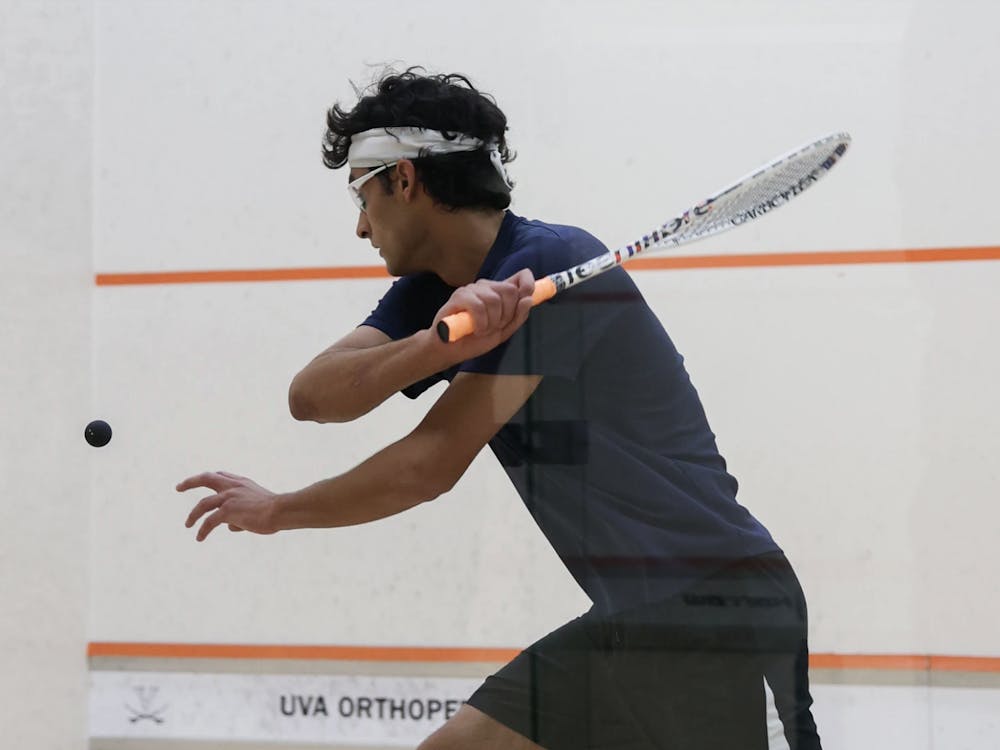The future seemed as bright as ever for Chris Rotelli on Memorial Day afternoon in 1999.
Still a few weeks away from his high school graduation, Rotelli was spending the holiday in College Park, Maryland watching the Virginia Cavaliers, the team he would be playing with for the next four years, win the national championship.
"It was unbelievable," Rotelli said. "I was here with my roommate for my first year, Andrew Farrone, and we went to the game. After the win we just looked at each other like 'Oh my god, next year we get to be a part of this.'"
For Rotelli, Farrone and the rest of the men's lacrosse class of 2003, a national title of their own would prove to be much more elusive than it seemed that May afternoon four years ago.
For three consecutive years, the Cavaliers played well enough to earn a birth in the NCAA tournament, and for three consecutive years Virginia suffered unpleasant exits from the tournament, ending up on the wrong end of a one goal game each season.
In 2000, it was a 12-11 loss to Princeton in the national semifinals. The next year it was a 15-14 overtime loss to Hofstra in the first round. But the closest game and most frustrating loss took place in the 2002 tournament, when the Cavaliers fell to Syracuse 12-11 in double overtime.
"We did everything that we could do to win, but we just didn't get the winning goal," Virginia coach Dom Starsia said of the Final Four loss. "That doesn't always happen. That game signified a little change in the culture -- taking a more positive approach, a more proactive approach to things."
The game proved to be a major turning point for the Virginia program. The squad evened the score by defeating the Orangemen 16-15 in Syracuse early in the 2003 season. The Cavaliers then went on to win their first ACC tournament since 2000, and avenged their only two regular season losses by defeating Maryland and Johns Hopkins in the Final Four to win the national championship.
"Since we lost to Syracuse last year we've all had a bitter taste in our mouths," senior midfielder A.J. Shannon said. "We were determined, all the seniors especially, to lead the team this fall and work our butts off and do everything possible to give us the opportunity again, and we achieved it."
The 2003 season started off well for the Cavaliers. In addition to beating the defending champion Orangemen on their home turf, Virginia also defeated 2002 runner-up Princeton on the road. After routing Drexel, Notre Dame and Towson in Charlottesville, the Cavaliers were No. 1 in the country with a 5-0 record.
Johns Hopkins ruined Virginia's unblemished record and took over the nation's top ranking on March 22, when the Blue Jays shut out the Cavaliers in the first half and held of a late Virginia run to win 8-7. The next week, the Cavaliers fell to Maryland by the same score at home.
The tide would turn back in Virginia's favor, as the squad defeated both North Carolina and Duke twice in April, once each in the regular season and ACC tournament.
Victories over Penn State and Denver closed out the regular season, and decisive NCAA tournament wins over Mount St. Mary's and Georgetown sent the Cavaliers to the Final Four for the fourth time in five years. This time, however, the Cavaliers would take the trophy home with them.
After blowing out Maryland 14-4 in the semifinal, the Cavaliers opened up a 4-0 lead over Hopkins in the final, and held on for a 9-7 victory to win the championship.
Almost four years to the day after Rotelli watched the Cavaliers win the title from the stands, he finally won a title of his own.
"We had a motto this season: 'Whatever It Takes,' and I think it was very indicative of this senior class," Rotelli said. "We've been there three years with varying degrees of success, but without a championship we all felt that it didn't matter too much. All year we were focused on winning the title this time around."






